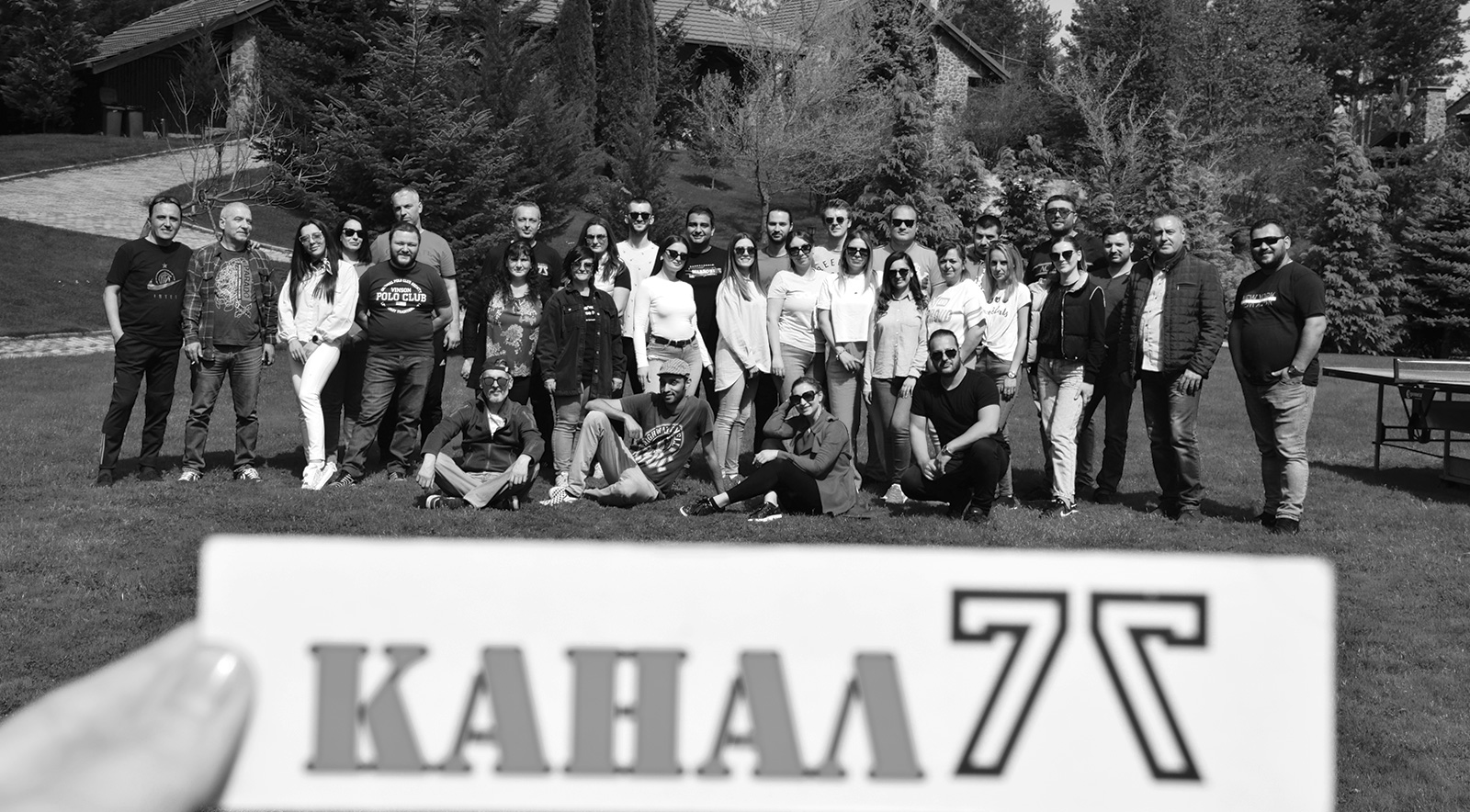
It was during the dying days of Yugoslavia that Radio Kanal 77 was born, the brainchild of recent university graduates, and the now deceased founding director, Goran Gavrilov. Today, Kanal 77 is the top private radio station in North Macedonia. Vesna Kolovska, the station’s news editor, was one of the station’s founding journalists.
Radio Kanal 77 is now led by Goran’s son, Viktor Gavriov, and Vesna admits that it has been a bumpy ride.
“Goran was a pioneering journalist and a highly successful media manager. He was always a step ahead and had ideas of how we could do things better. He was an idealist. He believed that radio had the power to change everything and that it must play a central role in our democracy, but it was never easy. He was physically attacked twice and his car was firebombed. There is a price for free speech in our country,” she says.
Goran died Covid-19 during the pandemic, aged just 55. Another of the station’s founding journalists also died last year, at just 57. As Goran’s son got to grips with the challenges of filling his father’s big shoes, the team was also grappling with a collapse of their commercial income and a steep rise in electricity costs.
“We were a successful commercial radio station, but two weeks into the Covid-19 pandemic, our advertising income collapsed. Then in 2022, with the full-scale Russian invasion of Ukraine, our electricity bills quadrupled. We couldn’t pay our bills,” says Vesna.
Vesna explains that the very slow pace of digitalisation by the state in North Macedonia has meant that Kanal 77 is principally an analogue radio station, although it has broadcast online via its website and Facebook since 2015 and is also broadcast by cable operators. Goran was behind the establishment of the electronic media association in the country.
“We have 34 FM transmitters, some dating from the 1990s, and they use large amounts of electricity,” she says.
It was at this crisis point that EED stepped in, providing Kanal 77 with an emergency grant to assist the station with their electricity bills. As part of this grant, the station has also been able to invest in new photovoltaic panels for their transmission network to lower their bills and help it become more sustainable.
“We realised that we could no longer wait for the State to digitise,” says Vesna.
Kanal 77 is the only national radio station headquartered outside the capital Skopje, with its main office based in Shtip. Vesna notes that this influences its editorial policy.
“We talk about local problems. We focus on issues that concern people outside Skopje and on the changes that they want in their communities,” she says.
Over the years, the station has built a strong audience and the trust of the nation, who recognise the editorial independence its journalists have maintained during difficult political times.
Much has changed in the world of radio over the past three decades, and like every other media, Kanal 77 is embracing the world of social media to ensure it stills relevant to all its audiences. Vesna admits that this can be personally challenging, but she knows it is vital to engage with younger people.
“As editor, I write analysis pieces and investigative stories. The production team adapt these for the radio, website and social media. I don’t necessarily always like it when my journalistic pieces are reduced to two lines, but I know we need work in multimedia and on social media to stay relevant,” she says.
Today, in addition to Facebook, YouTube and X (formerly Twitter) accounts, Kanal 77 has a TikTok account, where they have seen a huge increase in audience numbers. A recent video on TikTok on dual German and North Macedonian citizens generated huge interest.
Now Kanal 77 is planning podcasts about global politics and regional Western Balkan politics, with the host a high-profile law professor and previous military attaché in the Macedonian embassy in Washington DC.
One thing that has not changed are the challenges in operating a radio station in the country.
“There are many pressures on independent media. Now, the government wants to pass legislation to enable it to fund media in the period just prior to the presidential and parliamentary elections. We believe this will not be fair to independent media like us.”
She also notes the challenges of attracting young people to journalists, where salaries are low and there is less career stability than in other careers.
She believes that Kanal 77 will continue to be an important actor on North Macedonia’s media scene. “There is a need for our journalism. Surveys show that people perceive radio as the most reliable media,” she says.
As a high-profile journalist, she admits that she has had offers to move to TV. “I would never do that. I love radio,” she says.
This article reflects the views of the grantees featured and does not necessarily represent the official opinion of the EED.